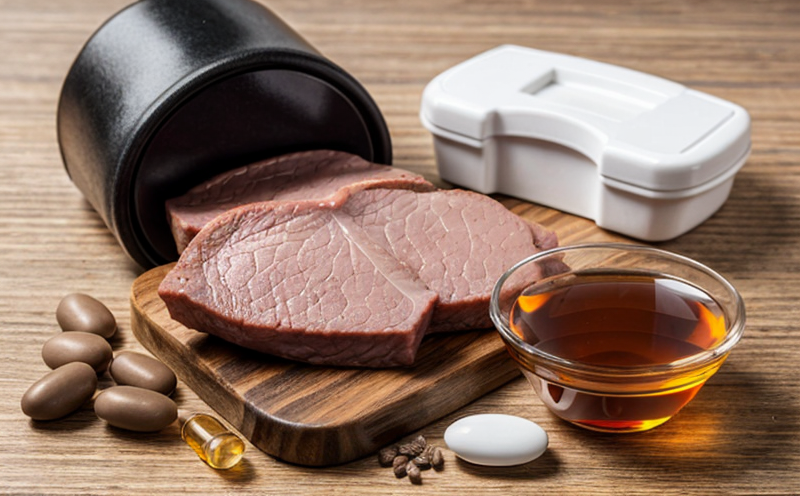Phase I Enzyme Activity Testing in Veterinary Toxicology
In veterinary toxicology, Phase I enzyme activity testing is a critical process that evaluates the initial metabolic transformation of xenobiotics (exogenous chemicals) into potentially more harmful or less harmful substances. This testing is pivotal for understanding how different compounds interact with the body's detoxification pathways, particularly focusing on hepatic metabolism.
The liver plays a central role in metabolizing drugs and other xenobiotics, converting them through Phase I reactions such as oxidation, reduction, and hydrolysis. These processes are mediated by enzymes like cytochrome P450 (CYP), flavin-containing monooxygenases (FMOs), aldehyde dehydrogenase (ALDH), and NADPH-dependent enzymes. The primary goal of Phase I testing is to determine the extent of enzyme activity, which can influence pharmacokinetics and potential toxicity.
Understanding enzyme activity during this phase helps in assessing drug interactions, identifying metabolites that may cause adverse effects, and predicting therapeutic efficacy. This information is essential for developing safer and more effective veterinary medications and ensuring compliance with international standards such as ISO 17025 and ASTM E2583.
Our state-of-the-art laboratory employs advanced analytical techniques, including liquid chromatography-mass spectrometry (LC-MS/MS) and high-performance liquid chromatography (HPLC), to measure enzyme activity accurately. These methods ensure precise quantification of metabolites formed during Phase I reactions, providing reliable data for regulatory submissions.
The testing process involves the use of appropriate reference compounds and standard curves to establish a baseline for comparison against test samples. Specimen preparation is meticulously conducted under controlled conditions to minimize variables that could affect results. This includes ensuring sample integrity through proper handling and storage before analysis.
Compliance with Good Laboratory Practices (GLP) ensures the accuracy, reliability, and reproducibility of our findings. Our team adheres strictly to these guidelines when performing all phases of testing, from initial formulation to final report generation. By doing so, we guarantee that every test result meets stringent quality control criteria set forth by industry standards.
Our comprehensive approach also encompasses detailed documentation and reporting tailored specifically for each client's needs. This includes raw data analysis, interpretation of results within the context of relevant literature, and recommendations based on observed trends. Our expertise extends beyond mere technical execution; we provide valuable insights that contribute to informed decision-making processes.
Scope and Methodology
The scope of Phase I enzyme activity testing covers a wide range of xenobiotics relevant to veterinary applications. This includes pharmaceuticals, pesticides, herbicides, solvents, and other chemicals commonly encountered in animal environments. The methodology involves multiple steps designed to ensure accurate measurement of enzyme activities:
- Selection of appropriate reference compounds
- Preparation of test specimens following standardized procedures
- Application of suitable reagents and solvents
- Incubation periods tailored to individual compound characteristics
- Detection using validated analytical techniques like HPLC or LC-MS/MS
The methodology aims to simulate real-world conditions as closely as possible while maintaining strict quality control measures. This ensures that the results obtained are representative of actual metabolic processes occurring in vivo.
| Compound Class | Reference Compound | Incubation Time (hours) | Detection Method |
|---|---|---|---|
| Pesticides | Aldicarb | 24 hours | HPLC |
| Solvents | Toluene | 18 hours | Liquid Chromatography-Mass Spectrometry (LC-MS/MS) |
| Pharmaceuticals | Caffeine | 48 hours | HPLC |
Quality and Reliability Assurance
Ensuring the highest levels of quality assurance is paramount in our Phase I enzyme activity testing services. We implement rigorous quality control measures at every stage of the process, from sample receipt to final report issuance.
Our laboratory maintains strict adherence to ISO 17025 standards, which require continuous calibration and validation of all instruments used for analysis. This ensures that our equipment remains accurate and reliable throughout its operational life cycle. Additionally, we participate in proficiency testing programs organized by reputable organizations such as the College of American Pathologists (CAP) or European Federation of Clinical Chemistry and Laboratory Medicine (EFCC).
Internal audits are conducted regularly to monitor performance metrics and identify areas for improvement. These audits cover aspects like personnel training, instrument maintenance, reagent quality control, and data management practices.
We employ a team of highly qualified professionals who undergo ongoing education and training to stay updated on the latest developments in veterinary toxicology. This commitment to continuous learning guarantees that our staff are equipped with the necessary skills to deliver high-quality results consistently.
Client feedback plays a crucial role in shaping our services continually improve. Regular surveys and interviews conducted by independent third parties allow us to gauge satisfaction levels accurately. Based on this input, we make adjustments where needed to enhance overall service delivery.





